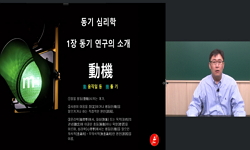In the vast and fruitful studies related to smartphones, very few empirical studies were done in developing countries, especially in the African continent. Even more, there are very few researches that studied the smartphone users' behaviors. In fact,...
http://chineseinput.net/에서 pinyin(병음)방식으로 중국어를 변환할 수 있습니다.
변환된 중국어를 복사하여 사용하시면 됩니다.
- 中文 을 입력하시려면 zhongwen을 입력하시고 space를누르시면됩니다.
- 北京 을 입력하시려면 beijing을 입력하시고 space를 누르시면 됩니다.
Smartphones Users’ Behavioral Intention in an African Developing Country (The Case of Gabon) : A Relationship between Social Need, Social Influence, Convenience, Perceived Cost Saving and Perceived Usefulness = 아프리카 개발도상 국가에서의 스마트폰 사용의도(가봉을 대상으로): 사회적 필요, 사회적 영향, 편리성, 지각된 비용, 지각된 유용성의 영향관계
한글로보기https://www.riss.kr/link?id=T14560242
- 저자
-
발행사항
진주 : 경상대학교 대학원, 2017
-
학위논문사항
학위논문(석사) -- 경상대학교 대학원 , 경영학과 Marketing , 2017. 8
-
발행연도
2017
-
작성언어
영어
- 주제어
-
발행국(도시)
경상남도
-
형태사항
vii, 59 p. ; 26 cm
-
일반주기명
지도교수: 김세범
- 소장기관
-
0
상세조회 -
0
다운로드
부가정보
다국어 초록 (Multilingual Abstract)
In the vast and fruitful studies related to smartphones, very few empirical studies were done in developing countries, especially in the African continent. Even more, there are very few researches that studied the smartphone users' behaviors. In fact, developing countries socio-economic facts, especially the telecommunication infrastructure levels, make the usage of smartphone in developing countries differ from their developed counterparts.
The study aims to provide an empirical research on the African smartphone users' behavior. In this research, we have reviewed the most important literature related to usage of Smartphones. We decided to use a modification of the Technology Acceptance Model to perform a theoretical analysis in order to explain the smartphone users’ behavior. This model includes social factors such as social need, influence and other subjective factors such as convenience, perceived cost saving aspects of using a smartphone in the context of a developing country. Considering such factors, we studied the behavioral intentions towards the use of smartphones by developing countries’ consumers.
Online survey was carried out through social media network (Facebook, Whatsapp, and KakaoTalk) and email. Due to incomplete responses we received a number of 207 responses. In order to proceed to empirical analysis, we used Statistical Package for Social Sciences (SPSS) version 21 and Analysis of Moment Structure (AMOS 18.0) to assess the reliability and the validity of our hypothesis. Therefore, confirmatory and path analysis have been performed.
After data collection and analysis, results have proved that smartphones users display their intention of keeping using the smartphones due to the above mentioned social and subjective factors. More specifically, according to the findings; firstly, the social need has been found to have a positive effect on the perceived usefulness. Secondly, social effects were confirmed to significantly affect (+) the perceived usefulness. Thirdly, convenience of smartphone was confirmed to affect the perceived usefulness of smartphone (+). Fourth, the perceived cost savings was found to affect the perceived usefulness (+). Fifth, Perceived usefulness was confirmed to affect significantly the behavioral intention of smartphone (+).
This study should provide an insight to interested parties about African smartphone users’ behavioral intention as well as contributing to the literature of the smartphone usage in the context of a developing country in Africa.
목차 (Table of Contents)
- I. Introduction 1
- 1.1 Background and Research Objective 1
- 1.2 Organization of Thesis 2
- II. Literature Review 4
- 2.1 Global Overview of Telecoms in Africa 4
- I. Introduction 1
- 1.1 Background and Research Objective 1
- 1.2 Organization of Thesis 2
- II. Literature Review 4
- 2.1 Global Overview of Telecoms in Africa 4
- 2.2 Brief Introduction of Telecoms Market in Gabon 4
- 2.3 Brief Introduction of Telecom Market in Korea 5
- 2.4 Relative comparison between South Korean Telecom Market and Gabonese Telecom Market 7
- 2.5 Brief Introduction of South African Telecom Market 8
- 2.6 Conceptual Framework 9
- 2.7 Social Needs 12
- 2.8 Social Influence 15
- 2.9 Convenience 18
- 2.10 Perceived Cost Savings 22
- 2.11 Perceived Usefulness and Behavioral Intention 25
- III. Research Method 31
- 3.1 Research Model 31
- 3.2 Research Hypotheses 32
- 3.2.1 Relationship between Social Needs and Perceived Usefulness 32
- 3.2.2 Relationship between Social Influence and Perceived Usefulness 33
- 3.2.3 Relationship between Convenience and Perceived Usefulness 34
- 3.2.4 Relationship between Perceived Cost Savings and Perceived Usefulness 35
- 3.2.5 Relationship between Perceived Usefulness and Behavioral Intention 35
- 3.3 Sample Design and Data Collection 36
- IV. Data Analysis 41
- 4.1 Measurement Scale 41
- 4.2 Structural Model 44
- V. Conclusion 47
- 5.1 Implications 47
- 5.2 Limitations and Further Research 49
- References 51
- Appendix 57












